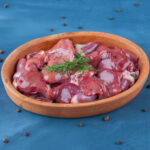
Fast Facts
Hydrate by drinking 2-4 milliliters of water per pound of body weight before workouts
Consume a high-carb, protein-rich meal four hours before exercising for optimal performance
Chocolate milk post-workout aids in muscle recovery and reduces soreness
Tart cherry juice can reduce inflammation and muscle soreness when consumed twice daily
Understanding the right nutrition for different workouts can enhance your performance and recovery. Here’s a comprehensive guide to fuel your body before, during, and after various exercises.
Cardio
Before
When engaging in aerobic activities like hiking, biking, or high-intensity interval training (HIIT), timing and content of your meals are crucial. Hydration is equally important. Drink two to four milliliters of water per pound of your body weight before working out. A high-carb meal with some protein, such as a peanut butter and banana sandwich, consumed about four hours before exercise, is ideal. If you exercise first thing in the morning, a piece of fruit like an apple or banana five to 10 minutes prior can suffice.
During
Stay hydrated by sipping water throughout your workout. Aim for 0.3 to 2.4 liters per hour, depending on the intensity and duration of your exercise.
After
Replenish your muscles with a combination of carbohydrates and protein. A snack like chocolate milk can aid muscle recovery and reduce soreness, providing both essential nutrients and hydration. It’s also important to rehydrate to replace any body weight lost during the workout. Weighing yourself before and after exercise can help determine how much fluid you need to consume.
Strength Training
Before
Carbohydrates prevent muscle breakdown, while protein supports muscle growth and repair. Aim for 15 grams of carbs and 0.3 grams of protein per kilogram of body weight within three hours before your workout. This combination helps maintain energy levels and prepares your muscles for the exertion ahead.
During
Hydrate consistently to maintain performance and prevent fatigue. Small sips of water during your workout can help keep you hydrated and support muscle function.
After
Consume about 20 grams of protein immediately post-workout to repair and build muscle. Options include whey or plant-based protein shakes or bars, ensuring they contain minimal sugar and adequate protein. Protein helps repair the tiny tears in your muscles caused by strength training, leading to stronger and more resilient muscle fibers.
Prepping for a Race
Before
Practice your race-day menu during training to see how it affects your energy and digestion. The night before a race, opt for a low-fiber, low-fat, high-carb meal like pasta. On race morning, have a small, carb-rich breakfast, such as toast or a smoothie. This approach ensures you have sufficient energy without overloading your digestive system.
During
For races under an hour, hydration during the race might not be necessary. For longer races, drink water and consume 30–90 grams of carbs per hour, using energy gels for convenience. Proper hydration and nutrition during a race help maintain your energy levels and prevent fatigue.
After
Hydrate to replace any lost body weight and electrolytes. Monitoring urine color can help gauge hydration levels—light-colored urine indicates proper hydration. Additionally, drinking tart cherry juice twice daily can reduce inflammation and muscle soreness, promoting recovery. Tart cherry juice is known for its anti-inflammatory properties, which can help alleviate muscle soreness and speed up recovery.
By tailoring your nutrition to your workout type, you can optimize your performance and recovery, ensuring your body is well-fueled and ready for the next challenge. Staying hydrated, consuming the right balance of carbohydrates and protein, and listening to your body’s needs are key to achieving your fitness goals and maintaining overall health











